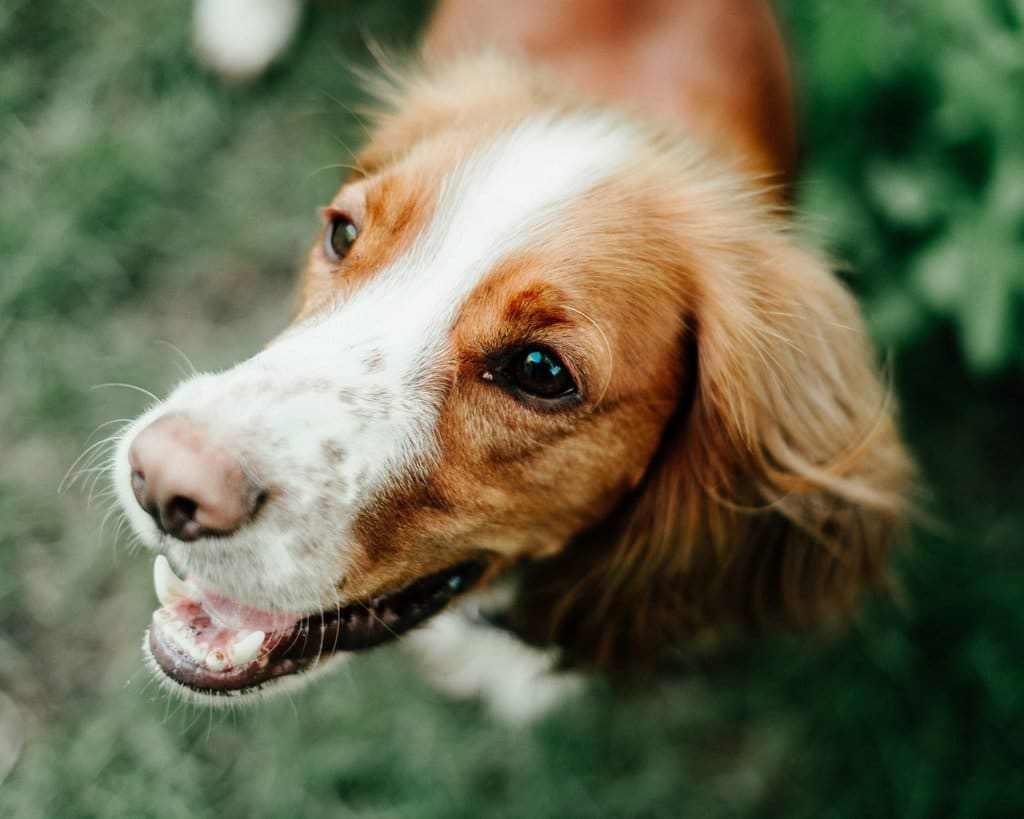It’s A Diagnosis That No One Wants To Receive.
Here’s how to spot cancer in dogs (and what you can do about it).
No dog is immune to cancer; in fact, it is the leading cause of non-accidental death in dogs. (By age 10, about 50% of dogs develop some form of it.)
If you have a canine companion who is getting on in years, you may be wondering how you can spot the telltale signs of cancer in dogs and what you can do after getting the dreaded diagnosis.
In this article, we’ll cover the signs to watch out for, popular treatment methods, and the role that nutrition plays in your dog’s health.
Common Types Of Cancer In Dogs
As with humans, cancer in dogs can strike any part of their anatomy, but there are a few types of cancer that are common among dogs.
- Lymphoma – affects the lymph nodes
- Skin cancer (mast cell tumors and melanoma are especially common)
- Osteosarcoma – a type of bone cancer
- Hemangiosarcoma – affects the cells lining the blood vessels
- Bladder cancer
- Mammary carcinoma – causes tumors in the mammary glands of unspayed female dogs
- Testicular cancer – affects non-neutered male dogs
This is far from an exhaustive list, however. The best way to monitor your dog’s health is to learn the various signs of cancer in dogs so you can take swift action.
Signs Of Cancer In Dogs
If your dog isn’t feeling well, he can’t make himself a doctor’s appointment or even tell you how sick he is. It’s up to you to be aware of your dog’s typical appearance and behavior and to make a veterinary appointment if something is amiss.
With early intervention, many types of cancer in dogs are treatable with minimal disruption to your dog’s life.
Common signs to look out for:
- Wounds that do not heal
- Lumps and bumps under the skin
- Swelling
- Enlarged lymph nodes
- Abnormal bleeding
- Limping / Pain
- Loss of appetite
- Lethargy
- Sudden unexplained weight loss
- Incontinence
- Constipation
No two cases of cancer in dogs are the same. Your pet may have all, some or even none of these symptoms.
You know your dog best. If you notice anything different about their behavior or appearance, take them to the vet as soon as possible.
Treating Cancer In Dogs
If your dog has been diagnosed with cancer, the first thing on your mind is probably, “What can we do about it?” Luckily, cancer in dogs may be treatable if caught early.
Depending on the type of cancer—and the individual dog—your dog may require surgery, chemotherapy, radiation therapy, immunotherapy, or a combination of these.
Veterinary oncologists specialize in treating and managing cancer in dogs. In addition to confirming a cancer diagnosis, they can give you treatment options, describe the differences between treatments, and give your dog the best quality of life during this difficult time.
Nutrition Matters
One of the best ways to help your pet stay healthy is to feed them a nutritious, balanced diet.
And no, dry kibble isn’t gonna cut it.
Many processed dog foods on the market have tested positive for heavy metals and other toxins, while others have been linked to such conditions as liver damage and heart disease. Definitely not the best choice for any dog, much less one living with cancer!
You’ve probably heard the old saying, “Garbage in, garbage out.” Well, the same applies to your pet. When your pet is eating processed food, that’s the equivalent of eating pre-packaged junk food every day.
Instead, make sure their diet contains fresh, healthy ingredients that meet all of their nutritional needs. This will maximize their chances of going into remission.
If your dog is already going through chemotherapy, s/he may feel nauseated and not want to eat. But some people have found that offering their dog high-quality meals helps whet their appetite and give them the energy they need for recovery.
Conclusion
Unfortunately, no one knows when (or if) cancer will affect their dog. But you would be doing your pet a huge disservice by pretending it will never happen to you.
Regular health checkups, plenty of exercise, and quality nutrition aren’t just ways to prevent cancer in dogs, they’re great ways to keep your dog happy and healthy well into their golden years.
Luckily, Rick’s Dog Deli is here to help.
Our selection of dog meals are made with 100% USDA-inspected ingredients and have been specially formulated to provide your dog with all the nutrients she needs to feel her best at any stage of life.
If your dog has specific health needs due to cancer or another underlying condition, let us develop a custom order. Rick’s Dog Deli will even communicate with your vet to create a meal your dog is sure to love.[/vc_column_text][/vc_column][/vc_row]


